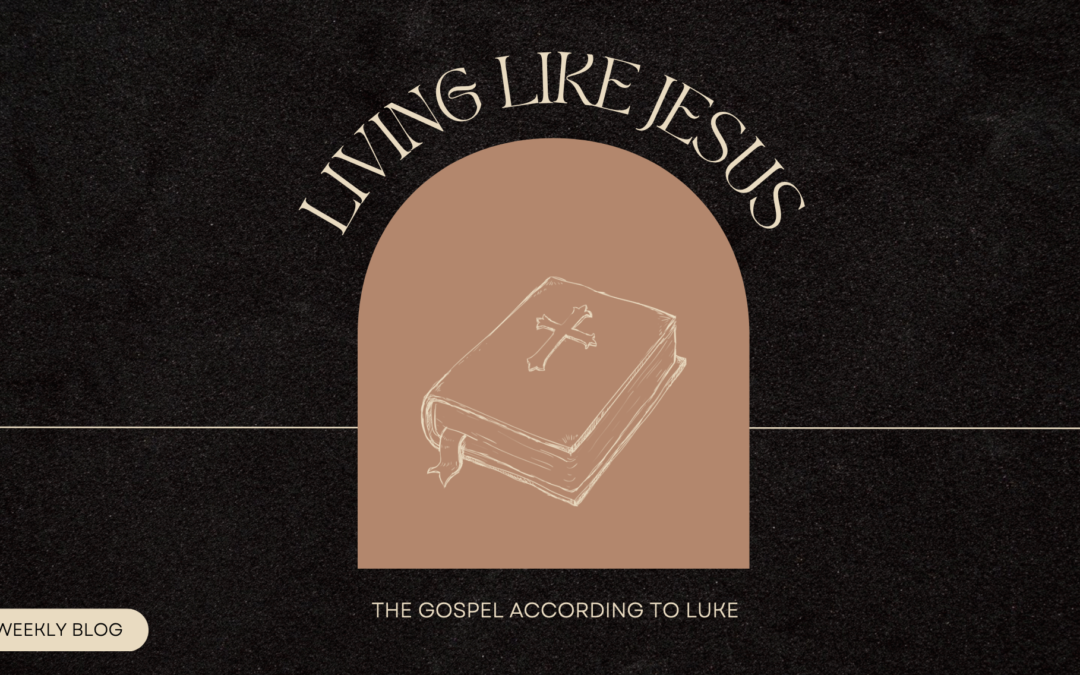LIVING LIKE JESUS: The Gospel of Luke—Week 10
Luke 11:1-4
We are continuing our study of the last of the spiritual practices of Jesus: prayer. This week we will be delving into Luke’s recounting of the Lord’s Prayer, given by Jesus in response to his disciples’ request that he teach them to pray as he prayed. In this model prayer provided by Jesus, we find key attitudes about prayer that can dramatically impact our prayer life.
The first key facet to a powerful prayer life is that our prayer should be rooted in deep, personal, love relationship with God. Jesus begins his model prayer by addressing God as “Father.” God is not distant in either attitude or location. He is ever present and keenly interested in every aspect of our lives. Though he is complete and enjoys perfect fellowship in the Trinity, he nevertheless desires an intimate relationship with each and every one of us.
The second facet of powerful prayer Jesus addresses is that our prayer must be rooted in trust. When Jesus says “hallowed be your name”, Jesus in referencing our ability to trust God because God always acts in ways that are consistent with his nature. Because God is holy, he cannot lie, so we can trust his Word and his promises. Yet, if you are like me, you struggle with trusting God, at least sometimes. Maybe it is because you prayed fervently for something that didn’t happen. Maybe it is because there have been times when you prayed and God seemed to remain distant or silent. In these moments when we are tempted to distrust God and his goodness, it is imperative that we move into the next line of the model prayer.
The third line of Jesus’ prayer is the one that puts all of our prayer life in perspective: “your kingdom come.” Jesus is telling his disciples that our prayer is not to be essentially about us and our desires. Instead, our prayers are to be about God and his kingdom’s work. Rather than our prayers being about God being there for us, our prayers should be about making ourselves available to God and his purposes. It reminds us that God doesn’t exist to fulfill our desires; we exist to fulfill his. We frequently ask God to be at our disposal, but are we truly willing to be at his? Putting our prayers and God’s responses to those prayers into this framework necessarily causes us to rethink those moments of distrust. So often our doubting of God comes from some expectation we had that was not met despite our fervent prayer. Yet, if we view those same events through the lens of furthering the kingdom of God, our expectations change, and we can begin to see how God uses such disappointments for our good and his glory.
It is only after establishing God’s kingdom as our prayer priority that Jesus moves into the portion of the model prayer for personal requests, and it is interesting to see how this kingdom focus changes the nature of the personal requests. “Give us each day our daily bread” acknowledges our dependence upon God for our daily sustenance, both physically and spiritually. It is not about our wants or financial security. It is focused on the moment and what is needed for that day to further God’s kingdom. “Forgive us our sins for we ourselves forgive everyone who is indebted to us” reminds us that we have no need to live in shame, for God has already forgiven us through Jesus Christ. Further, it reminds us of our obligation to further God’s kingdom by extending the same measure of grace that has been extended to us. Finally, “and lead us not into temptation” is not a call to God to preserve us from difficulty, but rather to preserve us through difficulty. It is a call for God’s grace to persevere, no matter the circumstances we may face.
Questions:
- Why is it so important for our prayers to begin with acknowledgements of relationship and trust?
- How is “your kingdom come” the pivot point of the model prayer? How does this statement shape the nature of our prayers and requests?
- How do your prayers reflect the framework and priorities of the model prayer? How do they differ? How might this week’s study change your attitude and method for praying?






